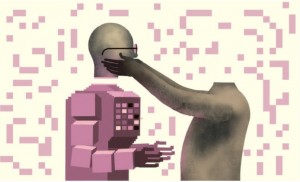Dear Commons Community,
I have just finished Nicholas Carr’s book, The Glass Cage: Automation and Us (Norton, 2014)). Carr is the author of The Shallows, a best-seller and Pulitzer Prize finalist. Carr picks up where The Shallows left off. Here is an excerpt from a review by Daniel Menaker:
In his previous book, “The Shallows” — essential reading about our Internet Age — Nicholas Carr, former executive editor of the Harvard Business Review and author of several books about technology, discussed the detrimental effects the Web has on our reading, thinking and capacity for reflection. In this new book, “The Glass Cage: Automation and Us,” similarly essential if slightly repetitive, Carr explains how certain aspects of automative technology can separate us from, well, Reality. How, for all its miraculous-seeming benefits, automation also can and often does impair our mental and physical skills, cause dreadful mistakes and accidents, particularly in medicine and aviation, and threaten to turn the algorithms we create as servants into our mindless masters — what sci-fi movies have been warning us about for at least two or three decades now. (As Carr puts it near the end of The Glass Cage, when “we become dependent on our technological slaves . . . we turn into slaves ourselves.”)
I found The Glass Cage a good read and important commentary on how we are becoming too dependent on technology from cell phones to automatic pilots to driverless cars. For instance, Carr references Harry Braverman’s Labor and Monopoly Capital that “most workers were being funneled into routine jobs that offered little responsibility, little challenge, and little opportunity to gain know how in anything important.” Later on Carr references a Robert Frost poem about a freshly mown field where he sees “ a small luster of flowers, a leaping tongue of bloom that the scythe had missed.”
Between Braverman and Frost, Carr also mentions the number of Americans including schoolchildren taking prescription drugs. “More than ten percent of school children and more than twenty percent of high-school boys have been given a diagnosis of attention deficit hyperactivity disorder, and two-thirds of that group take drugs like Ritalin and Adderall to treat the condition…..Drugs that numb the nervous system…to rein in our vital, animal sensorium”.
At 232 pages, The Glass Cage can be read over a weekend. I highly recommend it.
Tony


